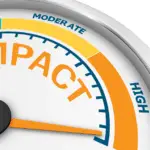When it comes to talent acquistion and employee retention, organizations cannot ignore the power of a strong employee recognition program (ERP). Numerous studies have shown the direct correlation between recognizing employees and increased productivity, morale and retention.
Yet, those same studies found that many organizations recognize workers infrequently or not at all. A recent recognition study found that 94% of employees receiving weekly recognition and 88% who were given monthly praise felt valued by their companies.
65% of employees polled in Gallup’s Q12 Employee Engagement Survey, reported they received no recognition or praise for their work in the last year.
The takeaway is a simple one. Establish a workplace culture where people feel appreciated and they not only will work harder, they won’t want to leave.
What is an Employee Recognition Program?
An employee recognition program or ERP, is a system that enables organizations to recognize or praise the hard work and individual accomplishments of their employees. Managers can praise team members, co-workers can easily recognize each other, and cross-functional teamwork can be celebrated.
While ERPs are as unique and different as the employers that institute them, there are some commonalities. They are often built utilizing tools and platforms designed to share peer accomplishments with everyone in the company and administer employee rewards programs.
No matter how an employee recognition program is administered, the most important element of ERPs is to ensure workers are receiving recognition regularly and consistently.
Nectar recently conducted an employee recognition survey and found that 78% of people polled claim they would be more productive if they just received recognition more frequently.
Why is this so important? Recognition loses it’s value over time. The farther it gets from the achievement, the less meaningful it is perceived.
What if you don’t get feedback for your workplace accomplishments until six months or a year later? How would that affect your motivation to keep working hard?
The Secret to Talent Acquisition and Retention
There is a war that rages every day for talent. It is forcing organizations to constantly find new ways to locate, hire, and retain high-performing talent.
However, as successful organizations are realizing, the key to attracting and retaining the best and brightest in today’s workforce boils down to job satisfaction. The happier an organization’s workers are, the easier it is to retain them and attract more.
For example, TrainingPros has long embraced a culture of teamwork and collaboration. A significant part of that culture is positive reinforcement of our employees and consultants, both formally and informally.
We do this through employee recognition programs. But as a company that recruits learning and development (L&D) training professionals for other organizations, a big part of TrainingPros’ ultimate success is also contingent on matching companies with the most qualified consultants to meet their specific training needs.
These independent consultants end up being an extension of our own employee team, and their success, undoubtedly, is critical to the ultimate success of ours. So including our consultants in our recognition programs is essential to our ability to maintain the most qualified talent.
Why An ERP Matters
Employee recognition programs (ERPs) can be vital to any successful organization, and they do more than provide benefits to the employees they serve. Having an ERP can help:
- Create a positive work environment
- Boost employee morale
- Improve retention rates
- Attract top talent
- Reinforce the organization’s values and culture
By investing in ERPs, organizations can improve their overall performance and productivity while creating a more engaged workforce. In fact, a recent study found that only 52% of those surveyed have an employee recognition program at their company.
According to an employee engagement study by OC Tanner, of those surveyed, workers who feel recognized by their employer are more likely to work at 80% capacity or higher and are 33% more apt to be innovative.
Additionally, recognition programs are not just for employees. If you work independently and rely on the expertise of other consultants or freelancers to complete projects, finding a way to apply the same logic behind ERPs to your consultants can also be an integral part of your overall strategy for success.
Think about yourself. Who would you express your appreciation for personally or professionally? Personally, you might consider a mentor, peer, parent or sibling, or even your best friend.
Professionally, think about your own employee, vendor and supplier list. Have they encouraged you and been a cheerleader throughout your career? A positive sentiment of appreciation, especially if it refers to specific actions, qualities or outcomes that have impacted you for the better, can go a long way to enhancing your relationship.
Types of ERP Rewards
There are many ways you can appreciate employees and consultants. The form of the recognition can be monetary, non-monetary, or a combination.
Ideas include:
- Birthday and anniversary celebrations
- Employee appreciation events or outings
- Gift cards or cash awards
- Employee of the month or service excellence awards
- Social media recognition
- One-on-one time with the CEO or another leader
it is important to establish varying levels of rewards that reflect the importance of people’s contributions. After all, these recognition experiences are an effective way to reinforce your gratitude.
How to Implement an Appreciation Program
If you’re ready to get started with an employee or consultant recognition program, here are five key actions to take:
#1 – Set clear objectives
Which behaviors do you want to reward? Reflect on what you will celebrate and encourage with your recognition criteria, and how that conduct connects to your company’s culture, mission and vision.
#2 – Offer meaningful rewards
You will need to do some research to understand what rewards align with your employees’ interests. They are more likely to be responsive to the program if they’re interested in the rewards they will receive from it.
#3 – Solicit feedback from employees and consultants
Does the program meet their needs? Select the rewards that provide inspiration and motivation to remain engaged in their work and with colleagues and clients.
#4 – Adjust as needed
If you discover that some aspects of the program aren’t as effective or received as well as others, it’s OK to fine-tune your approach. Keep going until you find what works for your employees and your company.
#5 – Communicate effectively
Take the time to let your employees know how and when they earn rewards. When they understand what’s in it for them and can see the value of the program, they are more likely to be mindful of how to reach the objectives required to achieve a reward.
#6 – Bonus
Also, keep in mind that your program can have impact beyond your current employees or consultants. You can share results with prospective employees and consultants, letting them know how their hard work and dedication is recognized and rewarded at your firm.
Final Thoughts
ERPs go beyond the transactional aspect of a relationship. In other words, if you do this, you get that.
Recognition is a form of human connection and relationship-building that tends to expand exponentially. So, it has both quantifiable and nonquantifiable components. You can set objectives and even measure things like increased productivity, engagement, and performance.
However, you may also find that there’s an irreplaceable human quality that can’t be measured. That’s been the case at TrainingPros.
We genuinely enjoy working with our consultants and clients, as a team, toward a shared goal. And while receiving appreciation is a wonderful experience, we can’t help but feel great when we tell others that we are thankful for them, too.
We all feel uplifted and connected, and that enhances everything we do together.
Does your company currently have an employee recognition program? How often do you give or receive feedback to your peers? Share your thoughts with me on LinkedIn!
- 9shares
- LinkedIn2
- Twitter1
- Facebook0
- Love This6









